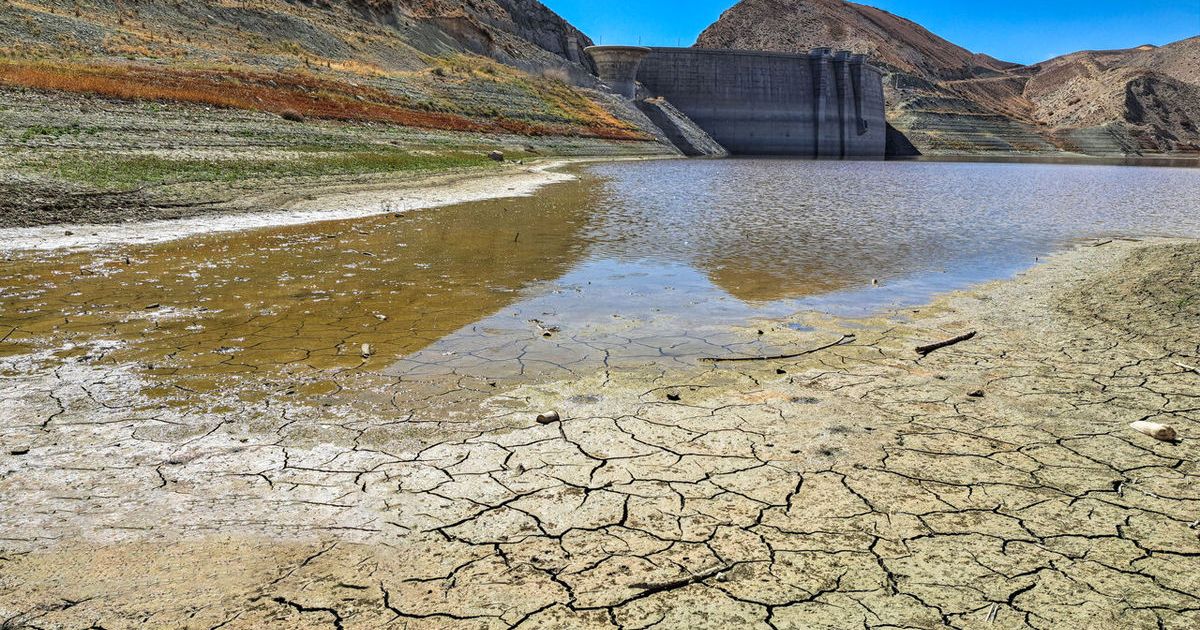The Iranian President Warns of Complete Evacuation of Tehran Due to Historical Drought Crisis

Iranian President Masoud Bezhakian warned in a televised speech that the capital Tehran may face a catastrophic fate involving the complete evacuation of its residents if it does not rain in the coming weeks, amid an unprecedented drought wave.
In the harshest statements in the country's history regarding the water crisis, Bezhakian said during a speech broadcast by state television on Friday: "If it does not rain, we will start water rationing in Tehran between late November and early December. Even with rationing, if the drought continues, we will run out of water, and we may have to evacuate the capital."
Official data reveals a bleak picture of the crisis. Water levels in the five main dams supplying the capital have dropped to half compared to last year. The Iranian Tasnim news agency reported that the current storage volume is about 250 million cubic meters, compared to 490 million in the previous water season.
Mohammad Reza Kavyanpour, head of the Iranian Water Research Institute, confirmed the severity of the crisis, stating: "Many provinces have seen a decrease in rainfall ranging from 50 to 80%, making the situation critically unprecedented."
In an indication of the severity of the shortage, the regional water company noted that the city's main reservoir is only sufficient for two weeks of consumption in case of delayed rainfall.
While scientific circles attribute a significant part of the crisis to "global climate change," after rainfall rates dropped by 40% from the average over 57 years, local experts believe that mismanagement is the exacerbating factor of the disaster.
Environmental expert Mahdi Karimi explained to the local newspaper "Etemad": "Iran is suffering not only from natural drought but also from administrative drought, where water is managed with a political rather than a scientific mentality." This mismanagement is reflected in the waste of vast amounts of water in the cultivation of water-intensive crops like wheat and pistachios in arid regions, in addition to water leakage from old and dilapidated urban networks.
The crisis has transformed from a mere service issue into a threat to national stability. Last summer saw periodic water cuts in several neighborhoods and the imposition of emergency holidays to cope with a heatwave exceeding 45 degrees Celsius.
Economists have warned that any mass migration from the capital, home to 15 million people, could lead to "catastrophic pressure" on neighboring cities and their infrastructure.
In the face of the water crisis, the government is asking citizens to reduce consumption by at least 20%, which could provide "temporary stability for a month or two" until it rains, as stated by Mohsen Ardakani, the general director of Tehran Water Company.
The government is also exploring projects for desalination and transporting water from the Caspian Sea and the Persian Gulf, projects that face criticism due to their high costs and implementation difficulties.
President Bezhakian's warning places the country before one of the most dangerous internal challenges in decades, as the crisis touches the daily lifeline and threatens unpredictable repercussions on the economy and state stability, with the people's hopes pinned on winter rains that may be the last refuge.
